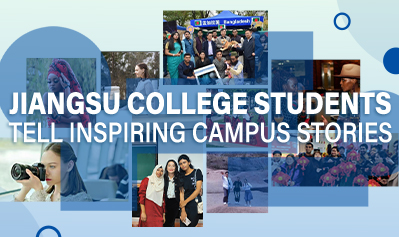Jiangsu college redefines online education

The advantage of the SPOC system is that it integrates age-old educational and pedagogical principles with a new ecosystem built around technology. [Photo/elearnagency.com]
For medical postgraduates at Nanjing Medical University, MOOC, or Massive Open Online Courses, which features unlimited participation and open access via the web, is an outdated story. They now prefer SPOC, also known as Small Private Online Courses, as they can receive tailored education with smaller groups of people, instead of attending general courses with thousands of students.
The new mode was carried out at the campus in June 2017; postgraduates majoring in clinical medicine can benefit from a total of 16 courses, which cover both their basic learning and academic reading.
The small-group environment, which involves students discussing with teachers and partners, offers them a much more personal approach than MOOC courses.
That is the point. MOOC is criticized for, according to a study done by the University of Pennsylvania’s Graduate School of Education, its low completion rate of online classes and the dramatic drop-off of student engagement after a few weeks.
“But SPOC excels in its integration of educational ideas with a new ecosystem built around technology and deep learning through thoughtful interaction with real people. This is a pedagogical principle that has proved to be immensely effective,” said Wang Jinfan, a professor at Nanjing Medical University with expertise in medical humanities.
He introduced the interactive and personalized online teaching program with the aim of mutually engaging both students and teachers in thoughtful discussions. During and after classes, students are required to provide responses through pop-quizzes, homework and exams; this also helps teachers fully engage with a group of interested students, increases their interactions and shifts their focus from quantity to quality.
“We have created a 24-hour platform that is easy for students to access, such as via their mobile phones and laptops. There are various courses all delivered by renowned Chinese and overseas professors. It can also help students solve their study problems at any place and at any time,” introduced Chen Feng, dean at the Graduate School of Nanjing Medical University.
He regarded SPOC as a helping-hand to relieve the medical graduates’ burdens, as the students are too often exhausted and struggle to find a balance between their heavy academic tasks and busy clinical rotation training.
“Once putting on my earphones, I can get myself fully involved in classes, learn repeatedly the key points and those I cannot understand, and consolidate timely after class,” said Guan Xiang, a student majoring in cardiothoracic surgery.
Lin Kai, Guan’s schoolmate from the general surgery department, said the SPOC courses he attended were “easy to access, well-prepared and catchy”.


 Jiangsu college students tell inspiring campus stories
Jiangsu college students tell inspiring campus stories